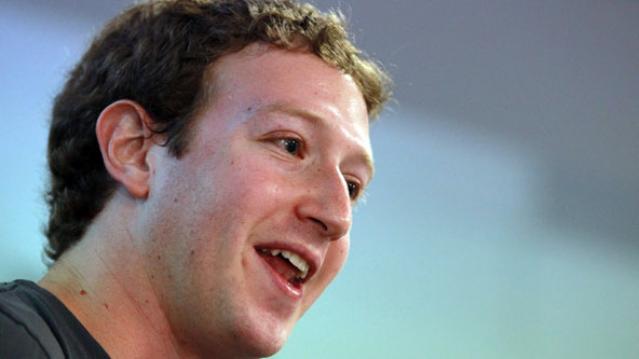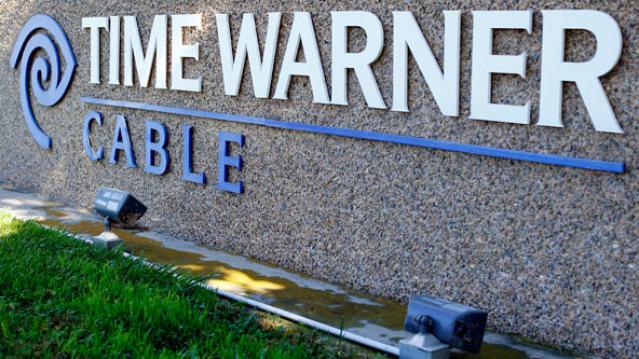How IBM Is Making Your Passwords Useless
For years, quantum computing has been hailed as a technology that could change the way the modern world works, but a long-standing technical issue has kept that potential from being realized. Now, in a paper published in the journal Nature last week, IBM scientists have taken a big step (see how I avoided the temptation to make a pun there?) toward solving that problem — and while it could represent progress toward making quatum computers real, it also could mean that current cybersecurity standards will soon be much easier to crack. In other words, your passwords could be obsolete soon.
The power of quantum computing has some obvious appeal: The increase in processing power could speed up research, especially in big data applications. Problems with large datasets, or those that need many millions (or billions, or more) of simulations to develop a working theory, would be able to be run at speeds unthinkable today. This could mean giant leaps forward in medical research, where enhanced simulations can be used to test cancer treatments or work on the development of new vaccines for ebola, HIV, malaria and the other diseases. High-level physics labs like CERN could use the extra power to increase our understanding of the way the universe at large works.
But the most immediate impact for the regular person would be in the way your private information is kept safe. Current encryption relies on massively large prime numbers to encode your sensitive information. Using combinations of large prime numbers means that anyone trying to crack such encryption needs to attempt to factor at least one of those numbers to get into encrypted data. When you buy something from, say, Amazon, the connection between your computer and Amazon is encrypted using that basic system (it's more complicated than that, but that's the rough summary). The time it would take a digital computer to calculate these factors is essentially past the heat death of the universe. (Still, this won't help you if your password is password, or monkey, or 123456. Please, people, use a password manager.)
Quantum computing, however, increases processing speed and the actual nature of the computation so significantly that it reduces that time to nearly nothing, making current encryption much less secure.
The IBM researcher that could make that happen is complicated, and it requires some background explanation. For starters, while a "traditional" computing bit can be either a 0 or a 1, a quantum computing bit can have three (or infinite, depending on how you want to interpret the concept) states. More specifically, a qubit can be 0, 1, or both.
 Up until now, the both part of that caused some problems in realizing the power of quantum computing.
Up until now, the both part of that caused some problems in realizing the power of quantum computing.
Apparently — and you'll have to take this on faith a bit, as it hurts my head to think about it — the both state can switch back to either 0 or 1 at any given point, and sometimes incorrectly, based on the logic in the programming. Think about when your phone freezes up for a second or two while you're matching tiles. This is its processor handling vast amounts of information and filtering out the operations that fail for any number of reasons, from buggy code to malware to basic electrical noise. When there are only the two binary states, this is a process that usually happens behind the scenes and quickly.
The hold-up with quantum computing up until now is that the vastly greater potential for errors has stymied attempts to identify and nullify them. One additional wrinkle in this reading quantum states is familiar to anyone with basic science fiction knowledge, or perhaps just the ailurophobics. What if the action of reading the qubit actually causes it to collapse to 0 or 1?
The very smart people at IBM think they've solved this. The actual technical explanation is involved, and well beyond my ability to fully follow, but the gist is that instead of just having the qubits arrayed in a lattice on their own, they are arranged such that neighbors essentially check each other, producing the ability to check the common read problems.
That opens the door to further quantum computing developments, including ones that will make your password a thing of the past. So, does this mean that you need to start hoarding gold? No, not yet. And hopefully before quantum computing reaches commercial, or even simply industrial/governmental levels, a better cyber security method will be in place. Or the robots will have already taken over. I for one welcome them.
The New Billionaires: Younger, Self-Made, More Diverse

Quick, picture a billionaire.
Chances are you conjured up an older, white man who inherited his fortune. That stereotype was pretty accurate for the past century, but times are changing.
Cultural and economic shifts over the past decade are realigning the demographics of the world’s 1 percent, and the billionaires of the future will be self-made, younger, and more diverse, according to a new report from UBS and PwC.
Last year, two-thirds of the world’s billionaires were self-made, compared with just 43 percent of billionaires 20 years ago. The report projects that the trend toward more self-made billionaires will continue get stronger over the next 5 to 10 years, peaking at about 70 percent of the billionaire population.
Related: Playgrounds of the Very Rich and Famous—A 2015 Guide
While two-thirds of current billionaires are over age 60, the average age is getting younger, thanks to both wealth transfers from the older generation and the growth of self-made billionaires.
In addition to getting younger, the report finds that billionaires are also increasingly more diverse. From 2003 to 2013, the number of female billionaires rose from 44 to 116. That’s still less than 10 percent, but it’s a number that’s growing fast.
Part of the trend toward diversity among billionaires is the explosive growth of wealth in Asia. In the first quarter of 2015, China created a new billionaire almost every week. The authors of the report expect that Asia will overtake the United States as the center of billionaire growth in the next decade.
The Class of 2015 Isn’t Ready to Join the Workforce

The improving economy means that more employers are offering decent jobs to the Class of 2015, but many of those new graduates don’t feel ready to join the working world.
Only 35 percent of students believe that college was effective in preparing them for a job, and even fewer — 20 percent — feel very prepared to enter the workforce, according to the 2015 Workforce Readiness Survey by McGraw Hill Education.
More than half of students surveyed said they never learned to write a resume in college or how to conduct themselves in a job interview. Nearly 60 percent said they didn’t know how to network or search for a job.
Related: Why the Class of 2015 May Actually Get Good Jobs
The job market has loosened up this year — employers expect to hire nearly 10 percent more new college graduates this year than last year, according ot a study released last month by the National Association of Colleges and Employers. Still, the best gigs remain very competitive, and students who don’t know how to navigate the job search process may find themselves at a disadvantage.
Two-thirds of those surveyed said that they wanted to get more internships or professional experience while in school, and about 60 percent wanted more time to focus on career prep.
Colleges regularly tout their career services departments, but the students surveyed for this report gave those offices poor marks. Only a third thought that their school’s career services department was effective, and a quarter had never used career services.
Cyber Thieves Hit the IRS—and 100,000 Taxpayers

Identity thieves hacked into an Internal Revenue Service data system earlier this year, potentially gaining access to personal financial information for at least 100,000 taxpayers.
The IRS issued a statement today saying that its online system, “Get Transcript,” was breached between February and May, the Associated Press first reported. The portal possesses information including tax returns and other taxpayer data stored by the IRS.
Related: Tax Thieves Could Boost Their Income by 262 Percent
The IRS’s statement said the tax thieves were able to penetrate the system because they had knowledge of 100,000 taxpayers, including dates of birth, Social Security numbers and tax filing details.
The massive hack comes as identity theft is at a record high. Earlier this year, the Treasury Inspector General for Tax Administration (TIGTA) reported that 1.6 million taxpayers were affected by identity theft in 2014 – compared to just 271,000 in 2010.
The IRS’s ability to catch fraudsters was even added to the GAO’s “High Risk List” or the list of federal programs that are most-vulnerable to waste, fraud and abuse.
Auditors attribute the increase to the uptick in electronic filing, which is more convenient for tax filers, but also easier for fraudsters to file fake returns.
TIGTA says the IRS doled out more than $5.8 billion in fraudulent refunds related to identity theft during the 2013 filing season.
The shift to electronic filing is also apparently making taxpayer information even more vulnerable according to the latest breach.
Related: IRS Struggles to Help Victims of Identity Fraud
The hack is obviously bad news for the agency, which is already struggling to address cases of identity theft as they stack up. TIGTA reported the IRS took about 278 days on average to resolve identity theft cases in 2013, despite the agency claiming that it takes about 180 days or six months to resolve issues of identity theft.
When it does complete cases, the IG found that about 10 percent of the “resolved” were riddled with errors.
The latest report comes at a tough time for the IRS, which is struggling with a recent round of budget cuts and is operating with an even greater workload while enforcing at least 40 new tax provisions under the president’s health care law.
The agency said it has temporarily suspended the online service that was the subject of the breach until the vulnerabilities are resolved.
Top Reads from The Fiscal Times:
- Mike Huckabee and His Tax Plan Get Slammed on Fox
- Putin Isn’t Reviving the USSR, He’s Creating a Fascist State
- States Band Together To Keep Obamacare Afloat
Charter to Buy Time Warner Cable: Winners and Losers

Charter Communications on Tuesday said it will acquire Time Warner Cable in a deal valued at more than $55 billion. Charter will also buy Bright House Networks, a smaller cable company, for $10.4 billion. The two deals combined will make Charter into the second-largest cable and broadband provider in the U.S., with about 24 million subscribers, behind only Comcast, which has about 27 million subscribers.
WINNERS
Time Warner shareholders: An extra $10 billion over the $45.2 billion Comcast had offered sure makes for a nice payday after the earlier deal got scrapped. “Time Warner Cable has succeeded in extracting a fantastic price for its shareholders, far exceeding our expectations,” Morningstar strategist Michael Hodel wrote Tuesday. Hedge fund managers John Paulson of Paulson & Co. and Chris Hohn of Children’s Investment Fund Management reportedly both had sizable holdings in Time Warner Cable.
Time Warner Cable subscribers: The company’s service is reviled by customers. Charter’s isn’t exactly beloved, either, and subscribers may not see any immediate changes, but Charter promises that the deal will translate into faster broadband for subscribers and more free public Wi-Fi. Whether it actually does or not, the deal seems to spell the end of the Time Warner Cable name. Subscribers won’t miss it.
John Malone: The Liberty Media billionaire finally gets the megadeal he’s been looking for to make Charter Communications into a major industry power. If the deals goes through, the company would become the second-largest cable and broadband provider in the country, with some 24 million total subscribers.
Related: Charter and Time Warner Cable Merger: It’s All About Broadband
LOSERS
Comcast: At least CEO Brian Rogers was graceful about the prospect of a larger competitor. "This deal makes all the sense in the world,” he said in a statement. “I would like to congratulate all the parties."
Television content providers: One rationale for the deal is that the scale of the combined company will afford it more leverage in its negotiations with programmers.
Cable customers and online video watchers? The proposed deal still concerns consumer advocates like those at public interest group Free Press. “The issue of the cable industry's power to harm online video competition, which is what ultimately sank Comcast’s consolidation plans, are very much at play in this deal,” said Derek Turner, research director for Free Press. “Ultimately, this merger is yet another example of the poor incentives Wall Street’s quarterly-result mentality creates. Charter would rather take on an enormous amount of debt to pay a premium for Time Warner Cable than build fiber infrastructure, improve service for its existing customers or bring competition into new communities.”
Bloomberg for President? Today There Was a Telling Tweet

Who is the only person who could nail the Democratic nomination for president if Hillary Rodham Clinton falters? According to USA Today columnist Michael Wolff, it’s not declared candidate Sen. Bernie Sanders of Vermont or about-to-declare former Maryland Gov. Martin O’Malley or progressive champion Sen. Elizabeth Warren of Massachusetts.
Nobody has the cash — which Wolff pegs at close to $2 billion — that would be required to mount a competitive race except for one potential candidate who been down the “will he or won’t he?” road before: former New York Mayor Michael Bloomberg. Wolff calls the self-made billionaire the obvious and only alternative because of his money, first and foremost, but also because of his “progressive social conscience with pro-growth-economic views.”
Related: Is America Ready for a Liberal Rock ‘n Roll President?
Of course, there is no reason to take Wolff seriously. Since leaving City Hall, Bloomberg has been busy reestablishing his direct control over Bloomberg L.P., the financial data and media behemoth he founded, and he hasn’t even offered a tease about possibly running.
But this morning, the Wolff column was tweeted out by Kevin Sheekey, who managed Bloomberg’s three winning campaigns for mayor. Sheekey, a former deputy mayor, is currently head of government relations and communications at Bloomberg.
“Next February say, if the sky falls in on Hillary — one or more of the storm-cloud scenarios breaking over her head — would Michael Bloomberg step up?” Wolff asks.
Kevin Sheekey probably knows the answer.
